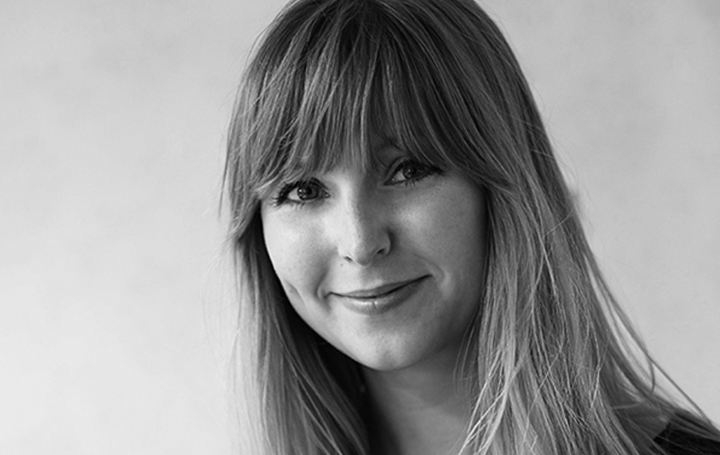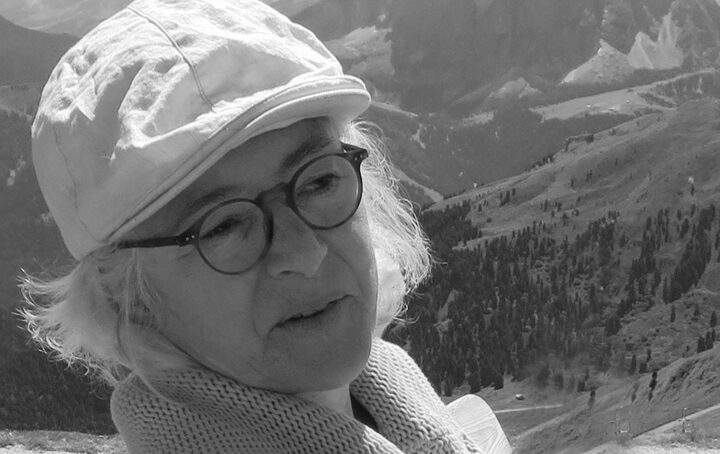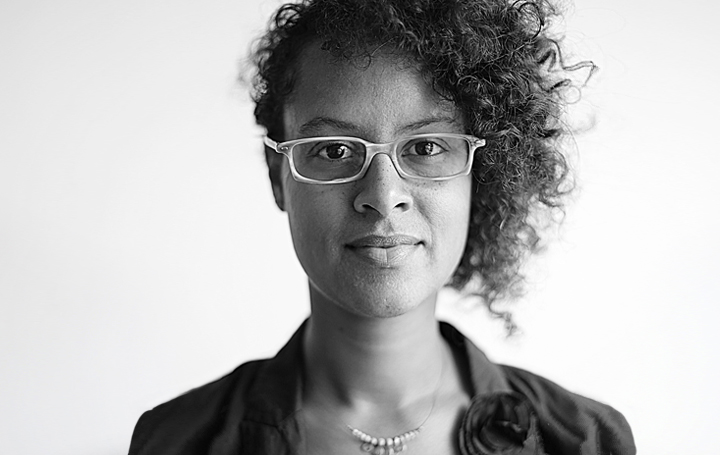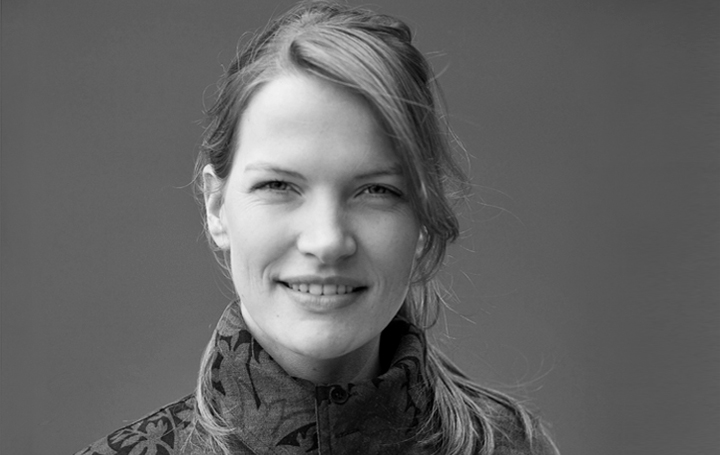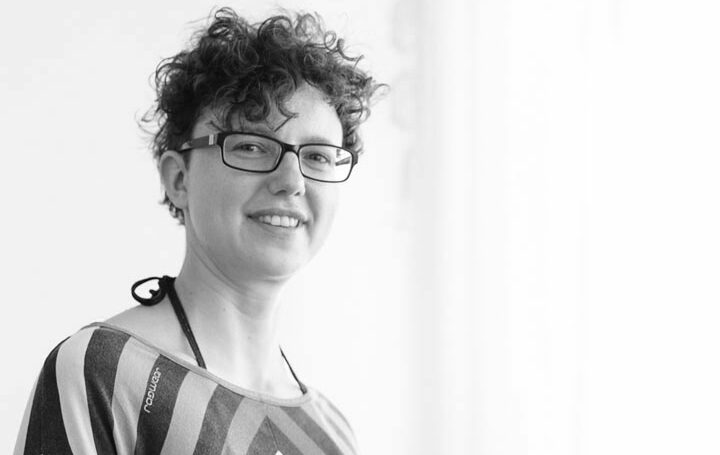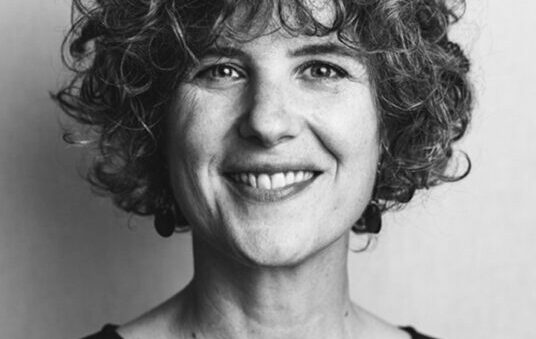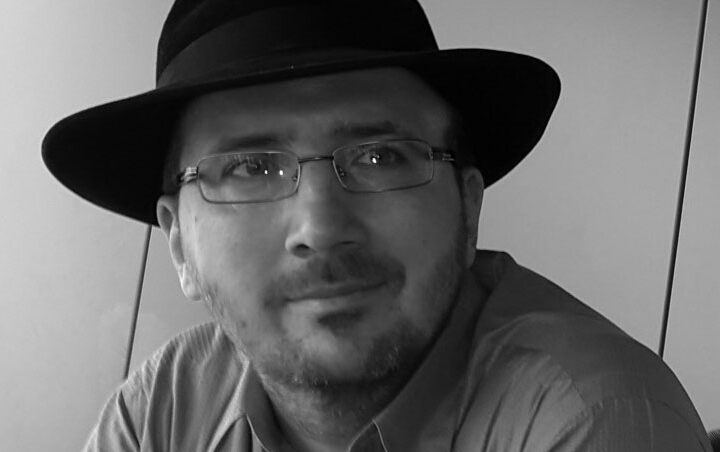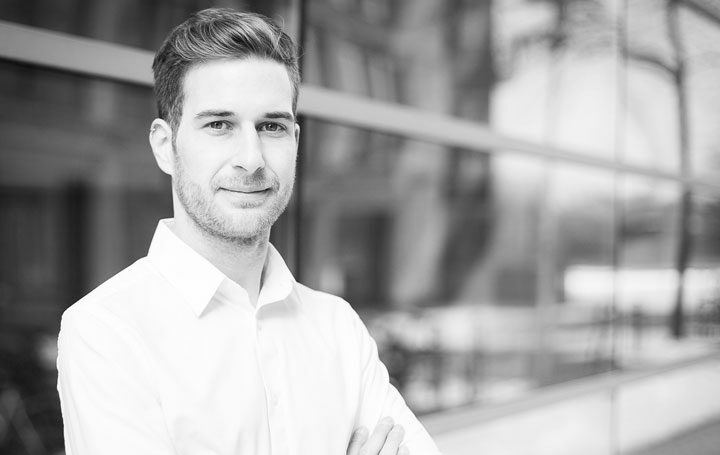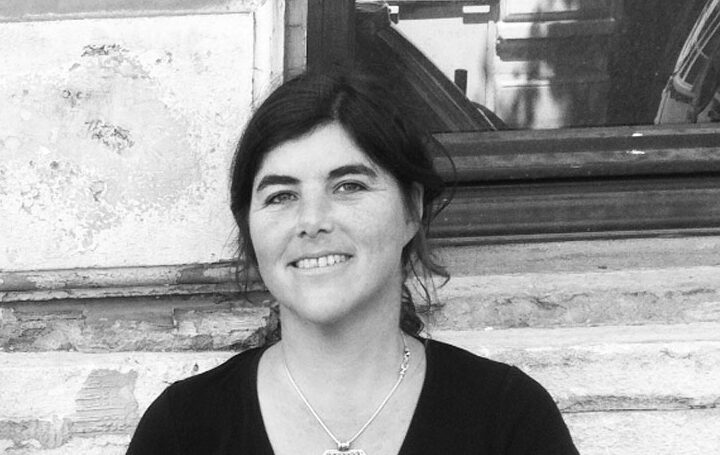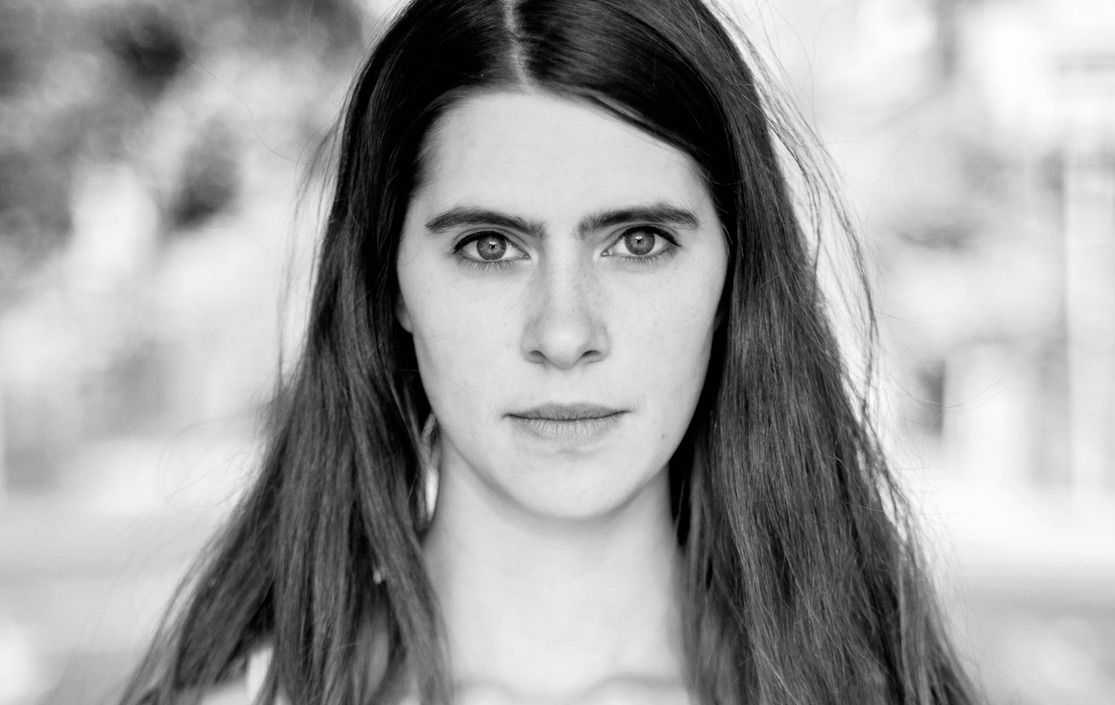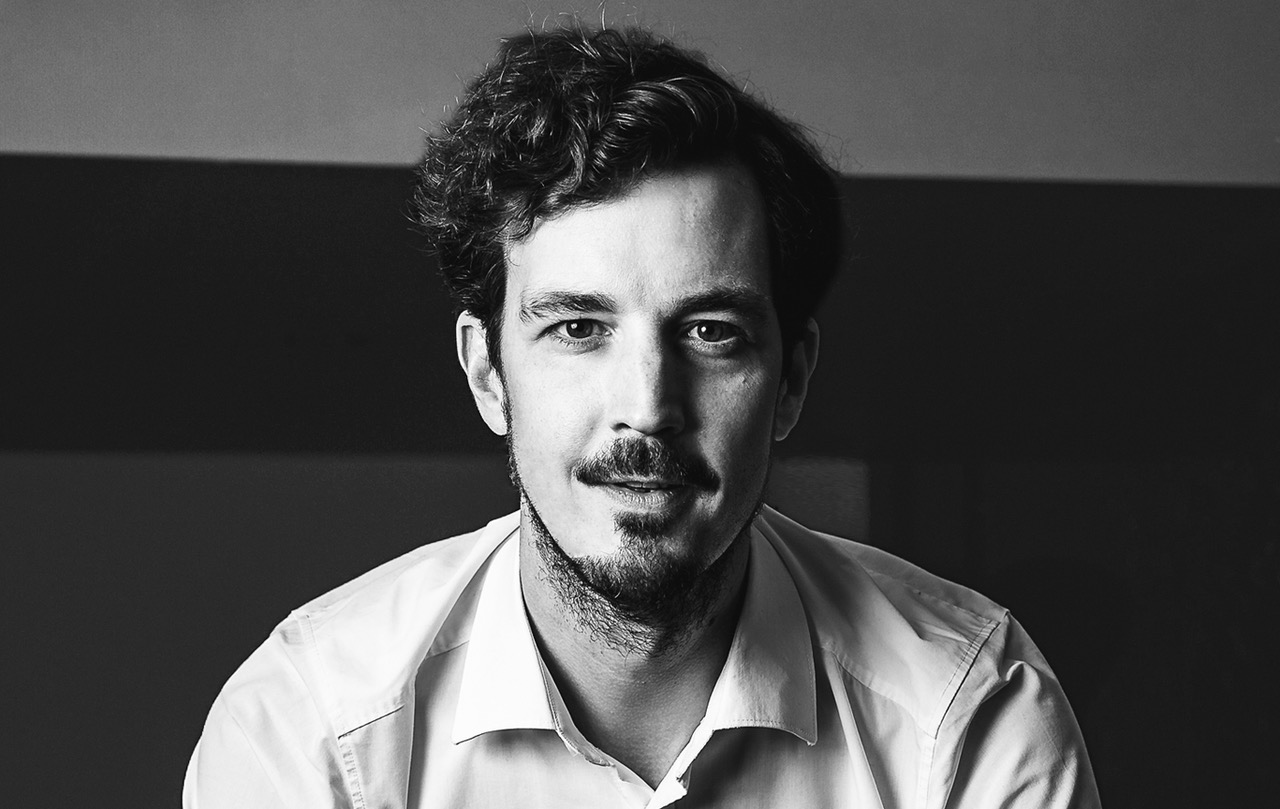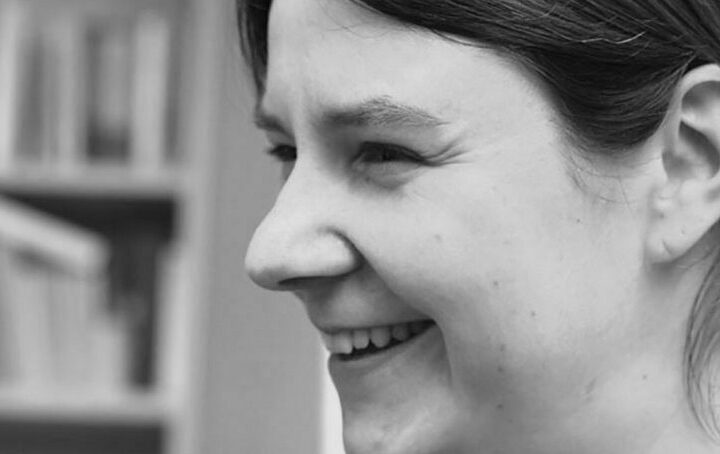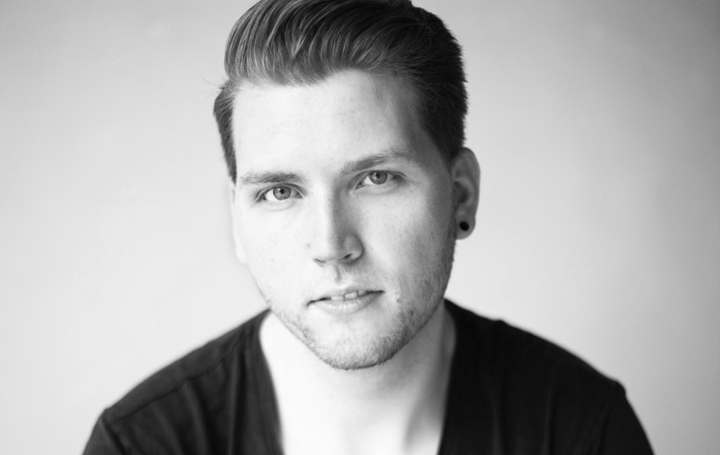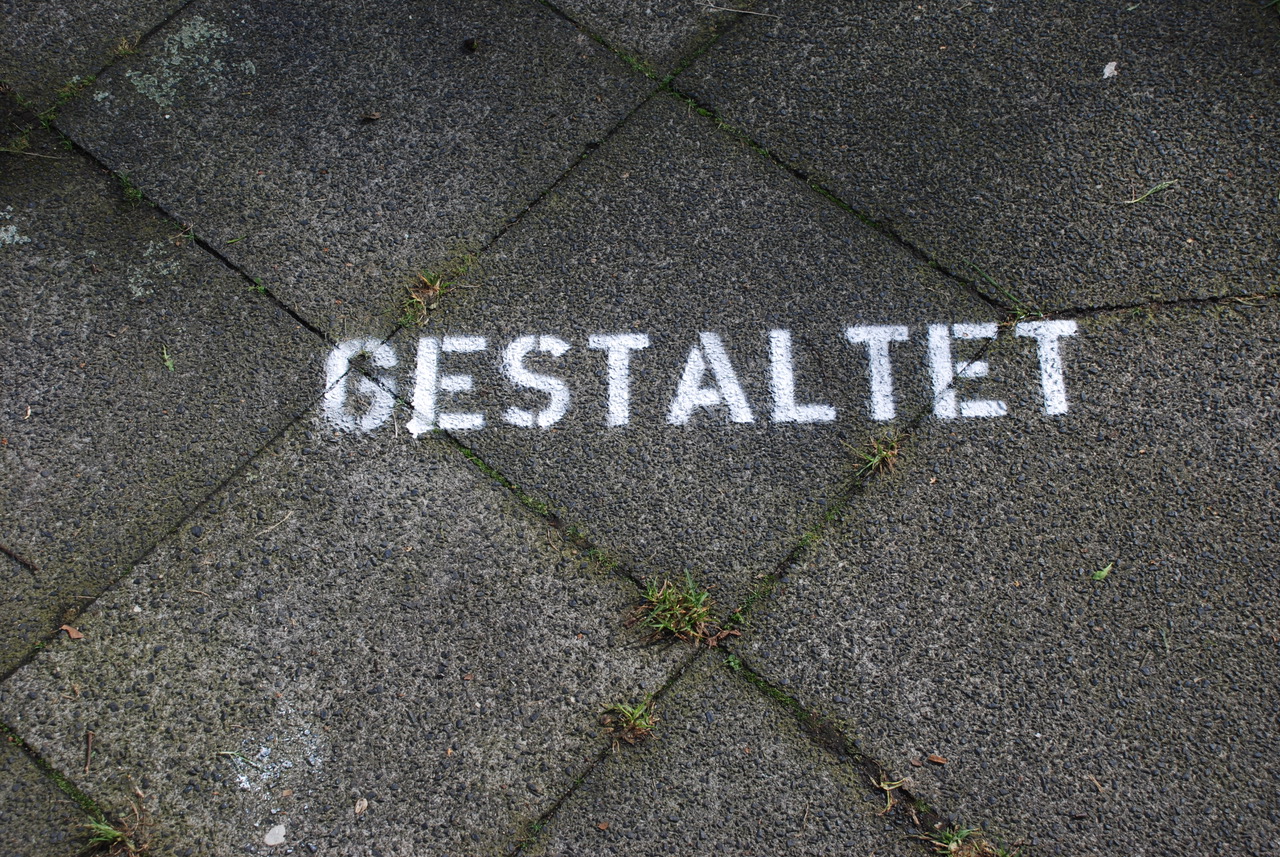
Social Urban Design
29. Dezember 2016Auf der Suche nach Bäumen
5. Januar 2017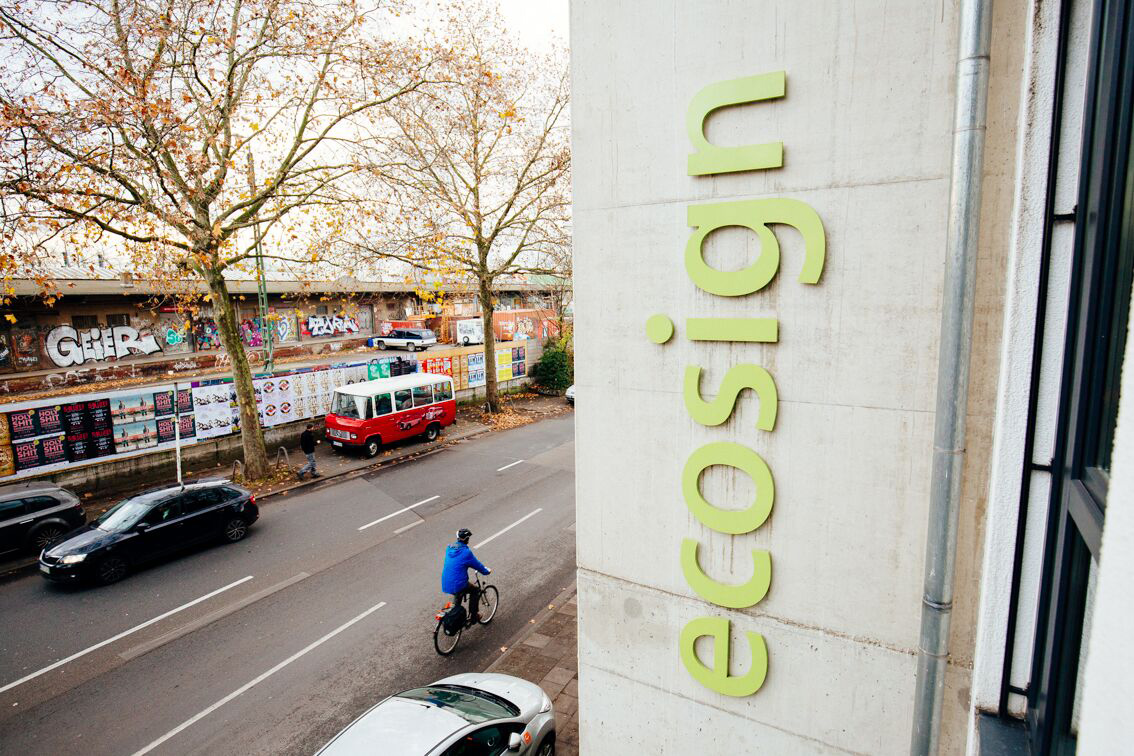
Facts
Name: ecosign / Akademie für Gestaltung
Schwerpunkt: Nachhaltiges Design
gegründet: 1994
Ort: Köln, Deutschland
Website: ecosign.de
Facebook: facebook.com/Ecosign
Twitter: twitter.com/ecosign_academy
Entstehungsgeschichte
Als Gründerin und Leiterin der Akademie berichtet Karin-Simone Fuhs im Gespräch über ihre Motivation, eine Ausbildungsstätte für Nachhaltiges Design zu gründen und gibt uns Einblick in die Entwicklung der ecosign seit der Gründung im Jahr 1994.
Wenn Karin-Simone Fuhs von ihrer Kindheit in Ägypten erzählt, geht es um gesellschaftliche und kulturelle Unterschiede, Emotionen und einprägsame Geschichten und Erfahrungen, die den Grundstein für spätere Entscheidungen gelegt haben. Zurück in Deutschland folgte ein Designstudium in Köln. Dabei hat Karin-Simone Fuhs schnell festgestellt, dass sie nicht nur schöne Dinge gestalten möchte, die sich gut verkaufen lassen: „Ich hab schon im Studium alle Dozenten verrückt gemacht und schnell gemerkt, dass es notwendig ist, einen anderen Weg zu gehen. Daraufhin habe ich mich umgeschaut, welche Hochschulen und Menschen sich mit dem Thema Nachhaltigkeit beschäftigen.“
Die Gesamthochschule in Wuppertal interessierte sie dank einiger spannender Dozenten, wie zum Beispiel Designtheoretiker Prof. Siegfried Maser, der später auch an der ecosign / Akademie für Gestaltung in Köln lehrte. Statt Köln zu verlassen, und das Studium in Wuppertal zu starten, hat sie jedoch früh erkannt, dass ihre konkreten Vorstellungen einer idealen Hochschule auch dort nicht zu finden wären.
„Ich wollte eine Schule, die das Thema komplett vereint und als Gesamtes lebt. Das bedeutet auch, dass man innerhalb der Akademie oder Hochschule eine eigene Kultur schafft. In Gesprächen ist mir klar geworden, dass man diese nachhaltige Form nicht künstlich implementieren kann in das System, das Hochschulen haben. Da wäre ich irgendwann auch nur zum Einzelkämpfer geworden. Und so habe ich mich entschieden – statt eine Hochschulkarriere anzustreben – es doch lieber selber zu machen und eine eigene Schule zu gründen.“
Das war Anfang der 90er Jahre. Mit Ökologie und Design konnten viele Banker und Unterstützer zu dieser Zeit wenig anfangen. Dennoch hat sie sich mit ihrem zukunftsweisenden Konzept durchsetzen können. „Mit sechs Dozenten habe ich angefangen, das Thema zu lehren. Mittlerweile haben wir fast 60 Dozent*innen und 250 Student*innen.“
Gesamtkonzept der Akademie
Karin-Simone Fuhs möchte ein stimmiges Gesamtkonzept von Lehre, Kommunikation, Struktur und Ausstattung. Der erste Eindruck, den wir bei unserem Besuch bekommen, passt zu ihren Erzählungen. Alles wirkt sehr familiär. Sie möchte einen Raum entstehen lassen, in dem man sich als Person individuell entfalten kann; jeder kann und soll mitreden, diskutieren und sich einbringen.
Als Leiterin der Akademie muss Karin-Simone Fuhs die Verantwortung tragen, aber wichtige Entscheidungen will sie lieber mit einem möglichst großen Konsens aller Beteiligten treffen. „Die ecosign ist so etwas, wie eine soziale Plastik“, zitiert sie eine ehemalige Dozentin. Für Karin-Simone Fuhs ist dies eine schöne und passende Beschreibung. Als Gründerin hat sie den ersten Stein in die Mitte gelegt. Mittlerweile beteiligen sich viele Menschen an der Entwicklung und Gestaltung der Schule.
Nachhaltigkeit im Studium
Das Thema Nachhaltigkeit ist heutzutage vielen Menschen ein Begriff. „Als ich die Schule 1994 gegründet habe, waren die ersten Studenten diejenigen, die etwas bewegen wollten. Danach wurde es schon anders. Die „New Economy“ kam. Das Bewusstsein für Nachhaltigkeit und ein Miteinander war zur Jahrtausendwende überhaupt nicht mehr vorhanden. Dann kam die Wirtschaftskrise. Seitdem hat sich viel verändert, auch in der Industrie und viele Unternehmen fangen an umzudenken. Wenn man beginnt, sich mit dem Thema Nachhaltigkeit zu beschäftigen, geht ein riesiges Themenfeld auf. Dabei wird bei dem konkreten Gedanken über eine bestimmte Sache eine Kette ausgelöst, die uns überfordert.“ Als Handlungsansatz empfiehlt die Direktorin daher, bewusster und verantwortungsvoller zu handeln, von Beginn an. „Es ist wichtig, Beispiele zu schaffen – wie der ‘Tag des guten Lebens‚ – die sichtbar werden lassen, dass es da etwas gibt, für das man sich einsetzen kann. Dabei hat Design eine Schlüsselfunktion inne. Man muss an der Substanz arbeiten und zugleich über den Tellerrand schauen.“
Unter gestalterischen, wissenschaftlichen und philosophischen Gesichtspunkten wird Design mit Nachhaltigkeit im Lehrkonzept der ecosign verknüpft. Dabei kann man als Student*in verschiedene Schwerpunkte setzten, wie beispielsweise Produktdesign, Grafikdesign, Illustration, Fotodesign, Filmdesign oder Designmanagement. Als private und unabhängige Akademie finanziert sich die ecosign ausschließlich durch Studiengebühren. Um das Studium dennoch möglichst vielen Interessent*innen zugänglich zu machen, bietet sie verschiedene Finanzierungsmodelle an (z.B. BAföG, KfW-Kredite, Stipendien). Das Studium endet nach acht Semestern entweder mit dem akademischen Abschluss „Bachelor of Fine Arts“ (B.F.A.), der in Kooperation mit der Alanus Hochschule für Kunst und Gesellschaft vergeben wird, oder aber mit dem nicht-staatlichen Diplom der ecosign / Akademie für Gestaltung.
„Mittlerweile bewerben sich immer mehr junge Menschen aufgrund des Profils der Schule. Dennoch ist die Mischung vielfältig; dabei gibt es natürlich auch Student*innen, die sich erst im Laufe des Studiums mitziehen lassen.“ Dennoch: „Das Bewusstsein wird stärker und auch der Wille, sich damit auseinanderzusetzen.“ Nachhaltiges Design sollte nach Karin-Simone Fuhs keine Theorie sein, sondern ganz selbstverständlich in der Praxis gelebt werden. Die ecosign / Akademie für Gestaltung bietet hierfür jede Menge Raum!

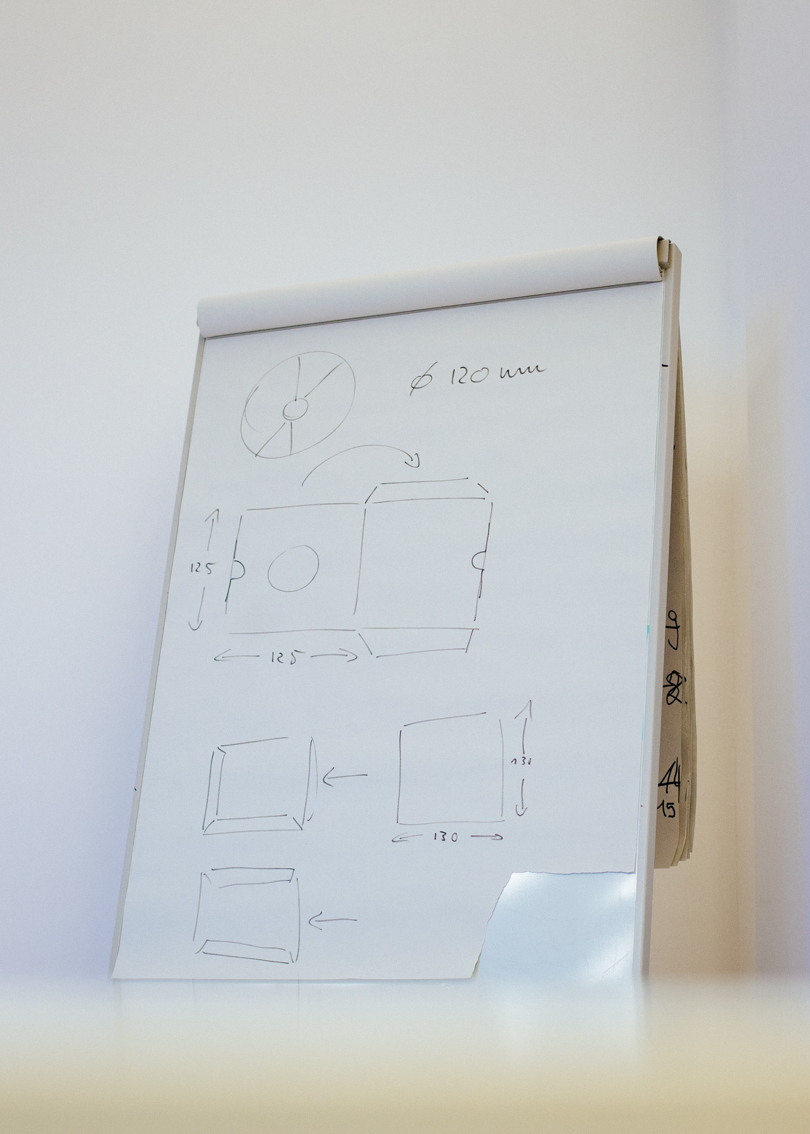
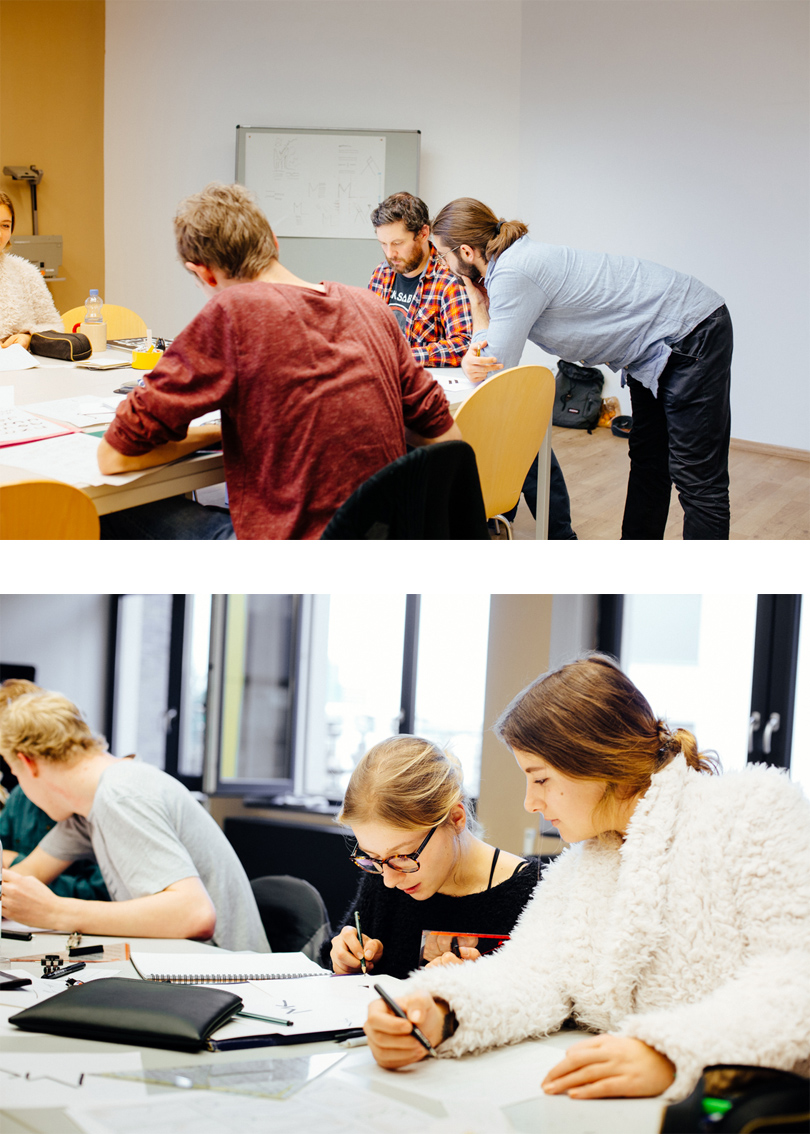
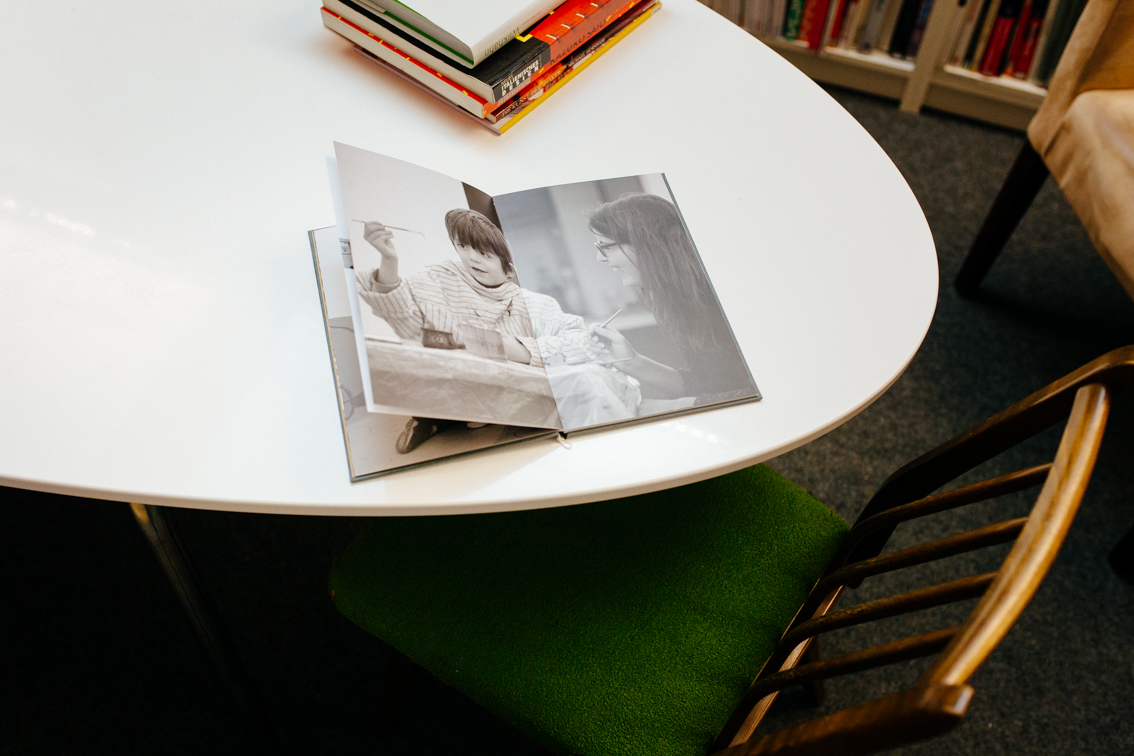
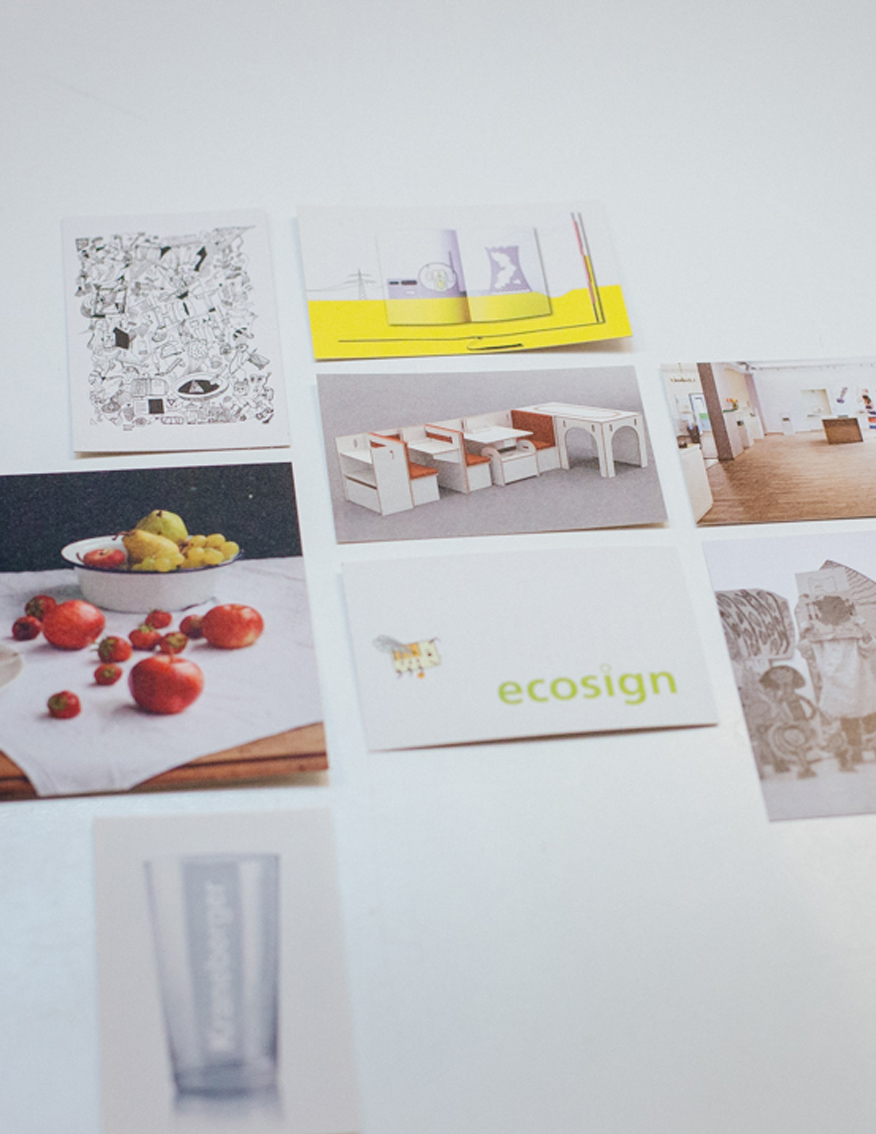
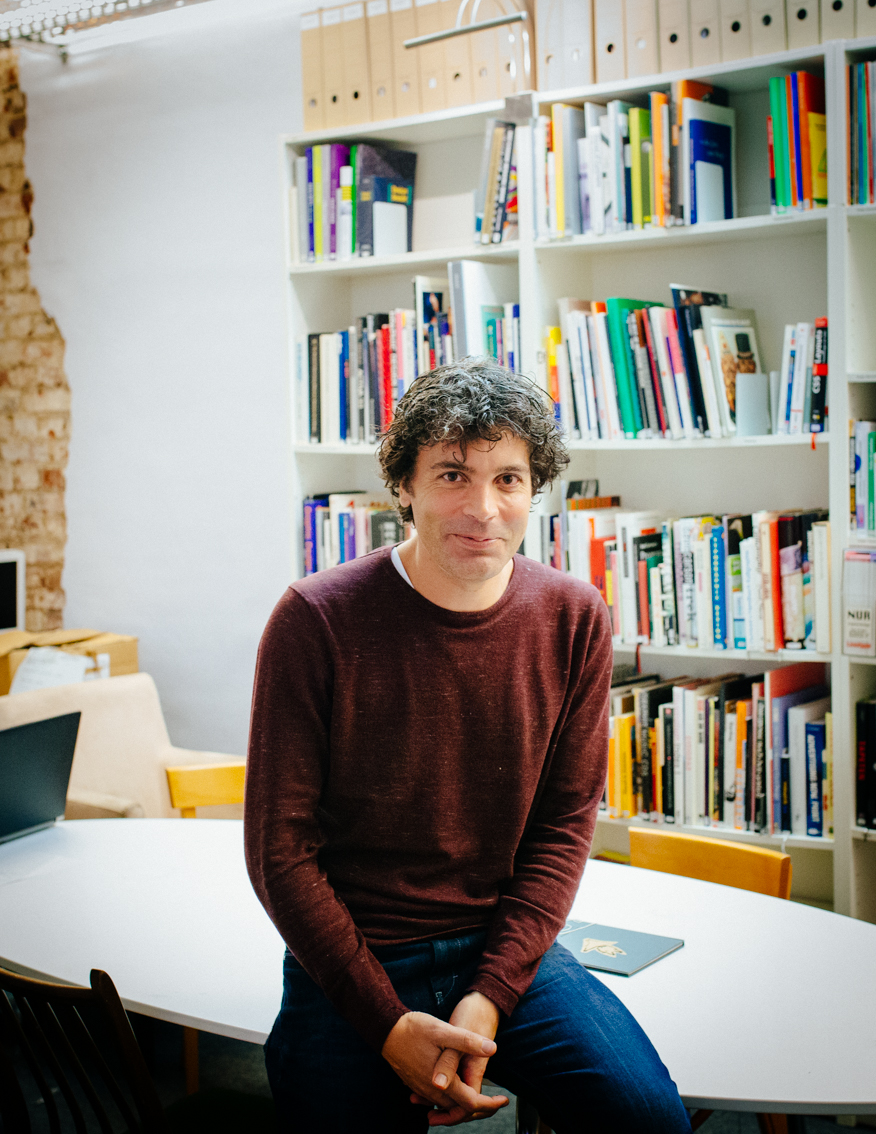
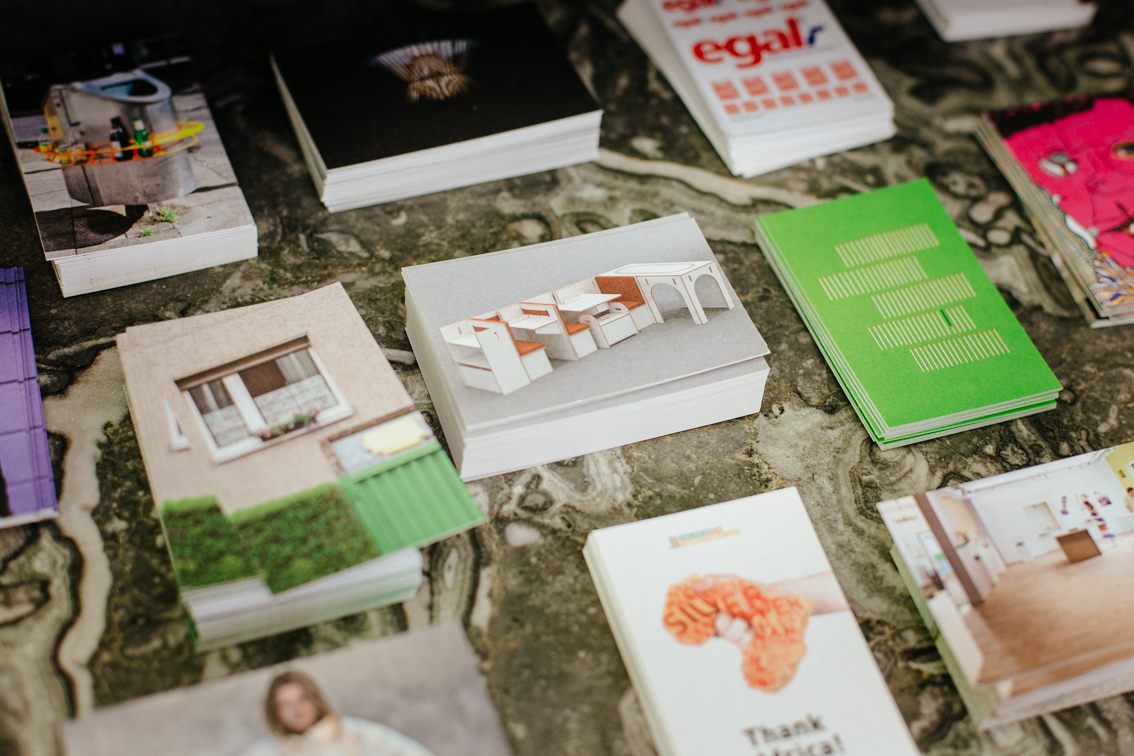
Wir danken Professorin Karin-Simone Fuhs und Diplom-Sozialwissenschaftler Davide Brocchi für das spannende Gespräch. Das Interview führten Dunja Karabaic und Anna Kamphues. Alle Fotos: Bozica Babic


